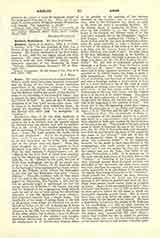www.catholic.com/encyclopedia/denis-amelote


Click to enlarge
Amelote, DENIS, b. at Saintes, 1609; d. in Paris, October 7, 1678. He was ordained in 1631, was a Doctor of the Sorbonne, and member of the French Oratory. His French translation of the New Testament (4 vols., 1666-70) was highly valued and often reprinted. His other Scriptural works are mostly extracts from his New Testament edition. As a strenuous opponent of the Jansenists, he wrote “Defensio Constitutionum Innocentii XI et Alexandri VII”.
A. J. MAAS
Enjoying this content? Please support our mission!Donatewww.catholic.com/support-us

